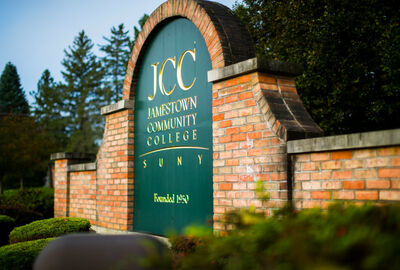Della Moore was elated when Danny Williams from the Colored Musicians Club & Museum of Buffalo, N.Y. committed to participate in Olean’s annual Juneteenth festivities.
“We got the top name,” said Moore, founder and director of the African American Center for Cultural Development in Olean.
The president of the Colored Musicians Club board, Williams is scheduled to give a presentation on the history of African-American music at 1 p.m. on June 18 inside SUNY Jamestown Community College’s Cattaraugus County Campus Cutco Theater. The event is free to attend and open to all.
JCC, in collaboration with Moore and the African American Center for Cultural Development, is also hosting Olean’s public Juneteenth celebration on campus from 11 a.m. to 3 p.m. that day.
Juneteenth, which became a New York-state recognized public holiday in 2020 and a federal holiday in 2021, has been celebrated in Olean every year since 2011. Thanks to a growing relationship between Moore and Paula Snyder, JCC’s Cattaraugus County Campus executive director, this is the first time the event will be held on campus.
“We got together and talked about what we could do for a partnership,” Moore said. “We are already in partnership, but we want to make it so we’re active partners. We’re making it happen, and I’m so thrilled about it.”
“As neighbors to the African American Center on Barry Street, we want to collaborate with Della and her organization as much as we can,” Snyder said. “Bringing Mr. Williams and the renowned Colored Musicians Club to our theater on campus is exciting. So too is the opportunity to host such an important celebration in our community.”
Moore said the celebration will feature exhibits, food, raffles, and a drum circle. “There’s something for everybody,” she said.
The menu will include pulled pork, hot dogs, baked beans, soda and water, snacks, and strawberry shortcake and peach cobbler for dessert.
Williams’ presentation is the highlight of the day.
“The idea is to keep the interest in African-American music going, where it came from, and why it’s important,” said Williams, a retired Buffalo police lieutenant who joined the club in 1982. “The club itself has been there for over 100 years. We’ve been doing the same thing for 100 years. We got started because the landscape did not allow us to earn a living. It was against the law for us to belong to the musicians’ union, and you could not work without a union card.”
Williams praised Moore for putting together the event.
“This is all done by Della,” he said. “It’s her initiative and her hard work. We just hope to add to what Della is putting together. We understand that we – by we I mean the African-American musical community – don’t have a large footprint in the Southern Tier.”
Williams, who plays the trombone, baritone, and cello, said that he and his peers give presentations, lectures, seminars, and concerts year-round in western New York. They also teach music inside their historic building at 145 Broadway in Buffalo. Their mission is to promote research and preserve the history of African-American music.
“It’s an ongoing process, never ending,” Williams said. “Music is our platform. Our philosophy is that every human being has a purpose in life. If you’re an electrician, a plumber, a doctor, a school bus driver, whatever, that’s your platform. What you do with it is what makes you important. What we try to do with music is to get people to understand that we’re all people. As long as you can play music, I don’t care what your color is.”
For more information about the Colored Musicians Club & Museum, visit thecoloredmusiciansclub.com.

